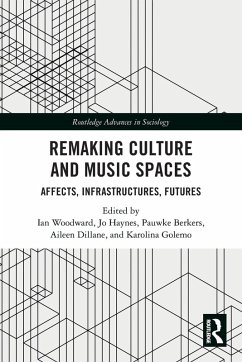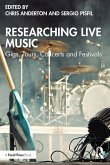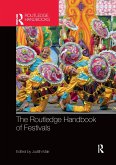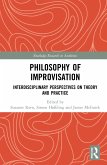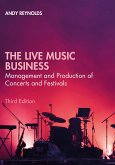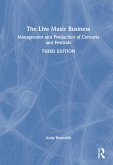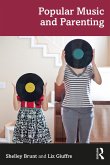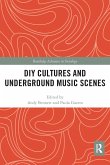This collection analyses the remaking of culture and music spaces during the ongoing COVID-19 pandemic. Its central focus is how cultural producers negotiated radically disrupted and uncertain conditions by creating, designing, and curating new objects and events, and through making alternative combinations of practices and spaces.
By examining contexts and practices of remaking culture and music, it goes beyond being a chronicle of how the pandemic disrupted cultural life and livelihoods. The book also raises crucial questions about the forms and dynamics of post-pandemic spaces of culture and music. Main themes include the affective and embodied dimensions that shape the experience, organisation, and representation of cultural and musical activity; the restructuring of industries and practices of work and cultural production; the transformation of spaces of cultural expression and community; and the uncertainty and resilience of future culture and music.
This collection will be instrumental for researchers, practitioners, and students studying the spatial, material, and affective dimensions of cultural production in the fields of cultural sociology, cultural and creative industries research, festival and event studies, and music studies. Its interdisciplinary nature makes it beneficial reading for anyone interested in what has happened to culture and music during the global pandemic and beyond.
By examining contexts and practices of remaking culture and music, it goes beyond being a chronicle of how the pandemic disrupted cultural life and livelihoods. The book also raises crucial questions about the forms and dynamics of post-pandemic spaces of culture and music. Main themes include the affective and embodied dimensions that shape the experience, organisation, and representation of cultural and musical activity; the restructuring of industries and practices of work and cultural production; the transformation of spaces of cultural expression and community; and the uncertainty and resilience of future culture and music.
This collection will be instrumental for researchers, practitioners, and students studying the spatial, material, and affective dimensions of cultural production in the fields of cultural sociology, cultural and creative industries research, festival and event studies, and music studies. Its interdisciplinary nature makes it beneficial reading for anyone interested in what has happened to culture and music during the global pandemic and beyond.
"This book gives us a very timely and important contribution for understanding how the COVID 19 pandemic has affected culture and music spaces. It estab-lishes a very useful timeline into the pandemic's affects, including how cultural events have adjusted into new pandemic friendly formats and describes the magical social, change-making, and ritual festival spaces we have missed out on. It takes us through both challenging and innovative change for infrastructures and spaces. Finally, the collection gives optimistic and brave suggestions for the future of the cultural industry in post-pandemic times. This is certainly a book that gives producers, commissioners, and academics in the cultural field a deep and nuanced insight into the history, dynamics and challenging futures that the field is facing at the moment."
Signe Brink Wehl, Head of Art and Activism, Roskilde Festival, Denmark
"This volume is a valuable contribution to the evolving conversation about an extraordinary moment in cultural history. It features insightful first-hand accounts of significant experiences and transformations across the cultural landscape and introduces useful analytical interventions."
Fabian Holt, author of Everyone Loves Live Music
"Remaking Culture and Music Spaces offers a fascinating and thought-provoking account of the transformation and remaking of cultural and musical activities during the Covid-19 global pandemic. This edited collection clearly underscores the added value of multidisciplinary, collaborative, in-depth empirical research that covers a variety of global and cultural contexts. The collected chapters present an exceptionally rich and lucid picture of the affective, infrastructural, and spatial dimensions that shape the material and symbolic production of culture and music as well as their significance for individuals, communities, and societies, not just in pandemic times but also more generally. The book also raises pertinent questions about the post-pandemic future of cultural and musical activity. For all these reasons, it is a must read for practitioners, policy makers, researchers, students, and anyone else who cares about culture and music."
Susanne Janssen, Professor of Sociology of Media and Culture, Erasmus University, Rotterdam, Netherlands
"After Remaking Culture and Music Spaces we will never be able to view the pandemic in the same way again. This book takes the reader on a tour of cultural responses to the pandemic. It highlights the powerful forces that refigure combinations of spaces, objects and practices. A highly recommended read!"
Prof. Martina Löw, Institut für Soziologie, Head of the Collaborative Research Centre Re-Figuration of Spaces, Technische University, Berlin, Germany
Signe Brink Wehl, Head of Art and Activism, Roskilde Festival, Denmark
"This volume is a valuable contribution to the evolving conversation about an extraordinary moment in cultural history. It features insightful first-hand accounts of significant experiences and transformations across the cultural landscape and introduces useful analytical interventions."
Fabian Holt, author of Everyone Loves Live Music
"Remaking Culture and Music Spaces offers a fascinating and thought-provoking account of the transformation and remaking of cultural and musical activities during the Covid-19 global pandemic. This edited collection clearly underscores the added value of multidisciplinary, collaborative, in-depth empirical research that covers a variety of global and cultural contexts. The collected chapters present an exceptionally rich and lucid picture of the affective, infrastructural, and spatial dimensions that shape the material and symbolic production of culture and music as well as their significance for individuals, communities, and societies, not just in pandemic times but also more generally. The book also raises pertinent questions about the post-pandemic future of cultural and musical activity. For all these reasons, it is a must read for practitioners, policy makers, researchers, students, and anyone else who cares about culture and music."
Susanne Janssen, Professor of Sociology of Media and Culture, Erasmus University, Rotterdam, Netherlands
"After Remaking Culture and Music Spaces we will never be able to view the pandemic in the same way again. This book takes the reader on a tour of cultural responses to the pandemic. It highlights the powerful forces that refigure combinations of spaces, objects and practices. A highly recommended read!"
Prof. Martina Löw, Institut für Soziologie, Head of the Collaborative Research Centre Re-Figuration of Spaces, Technische University, Berlin, Germany

